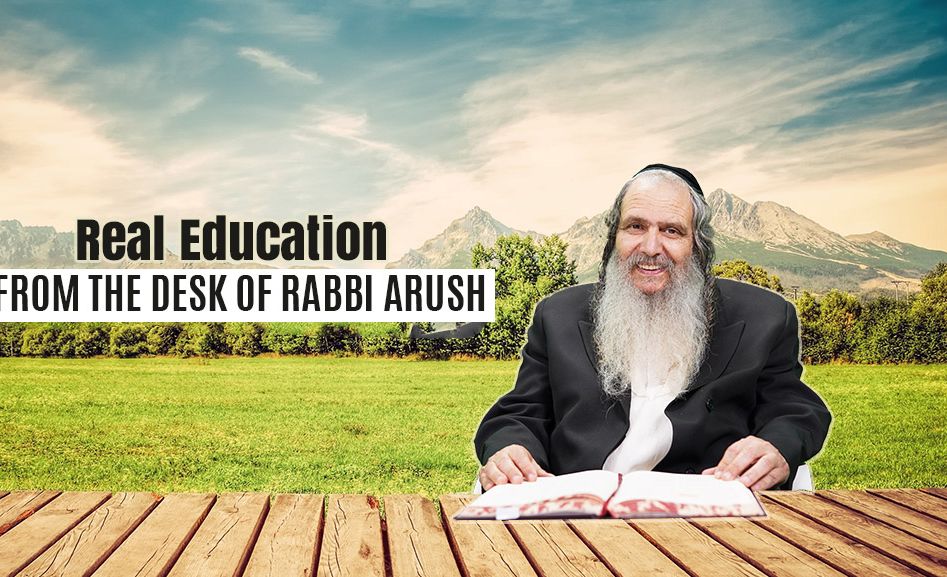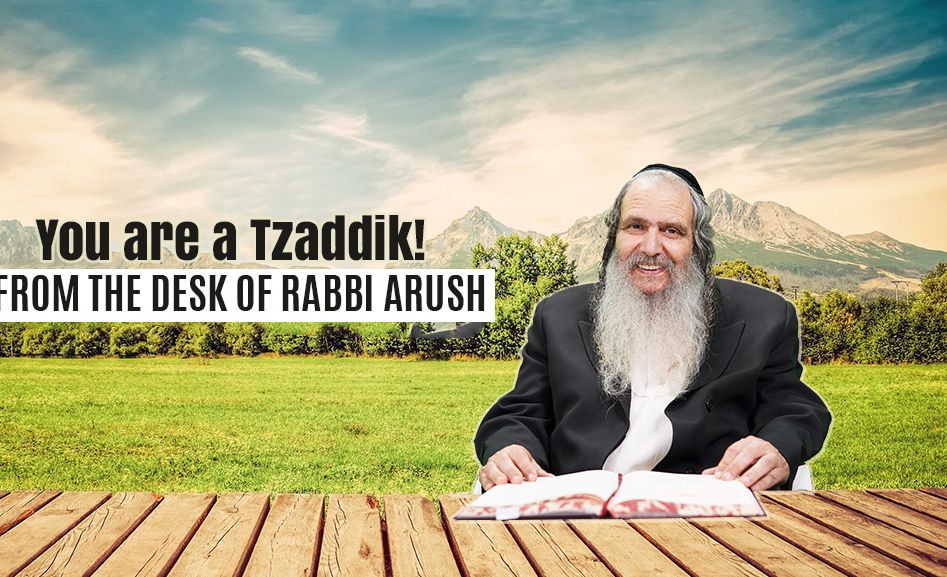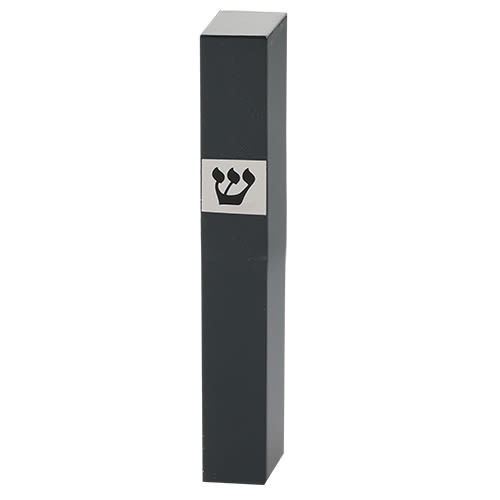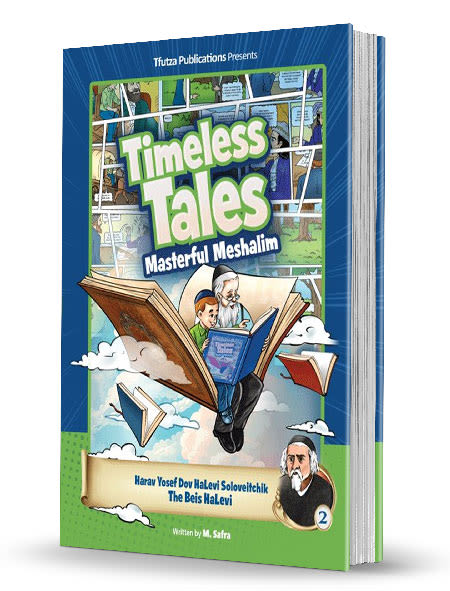
It’s a Mitzvah
The Gemara says that after a person dies he stands before the Heavenly Throne and is asked, "Were you involved in the mitzvah of P'ru U'rvu...

The Gemara says that after a person dies he stands before the Heavenly Throne and is asked, “Were you involved in the mitzvah of P’ru U’rvu, to be fruitful and multiply?” (Shabbat 31:1). The person is not asked, “Why didn’t you fulfill the mitzvah of P’ru U’rvu?” Instead, he is asked, “Asakta b’pru v’rvu?” which means “Did you busy yourself with the mitzvah ‘to be fruitful and multiply’?”
The word asakta, busy yourself, means much more than fulfilling the mitzvah of having a family. Asakta implies being busy with raising one’s children, in other words, chinuch bonim, raising children with true Torah values.
Today, many young couples are facing tremendous challenges in chinuch bonim. There are so many decisions to make; so many obstacles to face; so many mistakes to correct. Young couples are searching for answers, but all too frequently they receive incorrect advice.
Being busy, asakta, with the mitzvah of having a family includes how we raise our children. This is not a simple task, and perhaps it could be best understood with a mashal, a parable, of the Chofetz Chaim.
A merchant traveled to the fair in Liepzig. After purchasing everything he needed, he was left with just enough money to buy a train ticket to return home. At the train station, however, someone offered to sell him a stunning diamond at a fraction of its value.
The merchant refused, explaining, “Had you come yesterday, I would have gladly bought it. But I used all my money.”
The seller was persistent. He removed the diamond from his pocket and showed it to the merchant a second time. The diamond was exquisite! The merchant thought, “I must purchase this diamond! Instead of traveling first class, I’ll travel third, and use the difference in price to purchase the diamond.”
The merchant told the seller, “I can give you the difference between a first class ticket and a third class ticket.”
The seller was so desperate for cash that he agreed to the deal.
The merchant made his way to the third class car at the end of the train and took his place on the floor, together with a large group of unruly peasants and their even more unruly livestock.
One of the merchant’s friends walked past and noticed the merchant sitting on the floor. He asked, “Aren’t you embarrassed to be sitting on the floor together the common folk and their filthy animals?”
The merchant replied, “Yes I am. But whenever I feel embarrassed I look at my precious diamond and receive the strength to continue my journey.”
Every child is an exquisite diamond. Yes, raising children can be a challenge, but whenever we feel overwhelmed by that challenge, let’s remember that we’re dealing with diamonds! By remembering that each child is a precious diamond, we will have the strength to find solutions to the many difficult situations we encounter in raising our children.
Shmuel
In my book, Precious Jewels (page 250), my brother, Rabbi Avraham Yonah Scheinberg, shares with us a very beautiful thought: Chazal say that shortly before Shmuel HaNavi (Samuel the Prophet) was born, a bat kol (a Heavenly voice) announced that a child named Shmuel would soon come into this world and that he would become a prophet and leader of the Jewish Nation. After that, every woman who gave birth to a boy named her son Shmuel in the hope that he would become the great prophet whose imminent birth had been announced by the bat kol (Shmuel Rabbasi 3).
What happened to all the other Shmuels? Chazal say that although they did not grow up to become the great prophet, Shmuel HaNavi, they nonetheless merited ruach hakodesh, a spirit of holiness. Why? Because their parents raised them with the hope — the anticipation — of future greatness! They made a special effort to raise their little Shmuels to greatness, because they hoped that their little Shmuel would grow up to be the promised leader of Israel! When parents put all their efforts into educating and guiding their children properly, the children live up to their full potential.
That was my father’s attitude toward each of his children and students. Rabbi Scheinberg dedicated tremendous efforts toward raising us and sharing with us his love of Torah and joy in performing mitzvot.
Living Torah Scrolls
My father referred to his children as lebidiki sifrei Torah, living Torah Scrolls. My parents viewed us as too precious to leave with a babysitter, as my father would say, “How can I leave my children, the treasures of my life, with a stranger?” If there was a wedding in my mother’s family, she would stay home and my father would go. If there was a wedding in my father’s family, he would stay home and my mother would go. (My parents were very careful not to hurt the feelings of the person making the wedding. No one would think that my father or mother hadn’t come just because he or she wasn’t an immediate relative.)
A neighbor once convinced my parents to go to a wedding together while she came to the house to baby sit. After we had fallen asleep, the neighbor left us alone for a few minutes to get something. The door closed behind her, and she was locked out.
Thinking quickly, the neighbor went out to the street and asked a passerby to climb in through the window and open the door from the inside.
When my parents arrived home the babysitter told them what had happened.
My father’s immediate reaction was, “What? You let a passerby enter the house alone with the children? If there were a million dollars in the apartment, would you let a stranger from the street in?”
This anecdote demonstrates how much my parents valued their children. They viewed each child as a precious gift from Hashem, to be treasured.
Parents occasionally spoil their children with excessive love. But that was not the case with my father. His love never prevented him from disciplining us when the need arose. When he saw something that needed correcting, he would take care of it immediately. He never had to lay a hand on us; a stern look was more than enough.
An Expression of Love
In parshat Vayeira, after the angels left Avraham Avinu (our father, Abraham) and went to Sidom, Hashem said, “Should I conceal from Avraham that which I intend to do?” (Bereishit 18:17,18,19). These words are an unbelievable expression of the love that existed between Hashem and Avraham. Why did Hashem have this remarkable relationship with Avraham, to the extent that Hashem told Avraham what He was about to do?
Although we might assume that this love was a result of Avraham’s misirut nefesh (self-sacrifice) in throwing himself into the fiery furnace of Ur Kasdim, the Torah states otherwise: “I love him because he will command his children and household after him, and they will keep the way of Hashem to do righteous and justice” (Bereishit 18:19). Hashem loved Avraham because Hashem knew that Avraham would raise his children to keep the ways of Hashem – that Avraham would truly be Asakta b’pru v’rvu, busy with building a family.
Pesach
As Pesach approaches, let’s keep in mind the lessons we want to impart to our children.
By showing our children the love and simcha (joy) that we put into the preparations for the holiday, we are not only demonstrating the proper way to prepare for Pesach, we are also inculcating our children with love and simcha of the holiday.
When my children were young, I gave them a reward for every drawer that they cleaned; the larger the task,(especially when it came to cleaning the cupboards in the kitchen, not to mention the refrigerator!) the greater the reward. It made the cleaning exciting, and my children were constantly asking me how they could help. Just a few years ago my oldest daughter, Yosefa, said, “Mama, although as we grew older we don’t clean for the reward, today, we still feel the excitement that we had when we were children!”
Through making the preparations for Pesach exciting, we are teaching our children the joy of doing mitzvot.
Whether it is educating our children to Torah values or cleaning for Pesach, if it is done with love and simcha (joy) we will succeed, with Hashem’s help, in raising children who will be true servants of the King.













Tell us what you think!
Thank you for your comment!
It will be published after approval by the Editor.